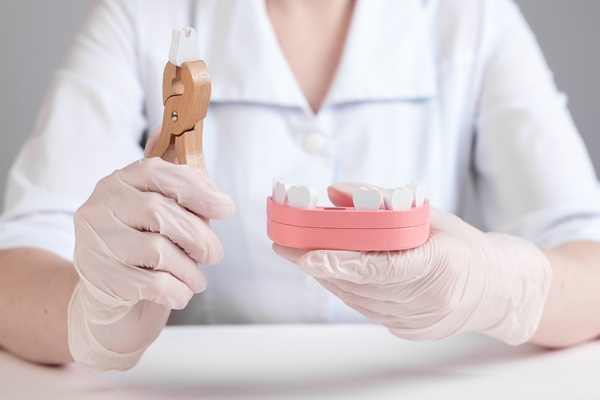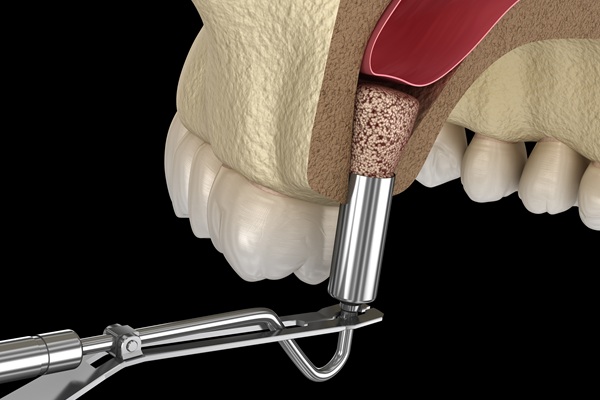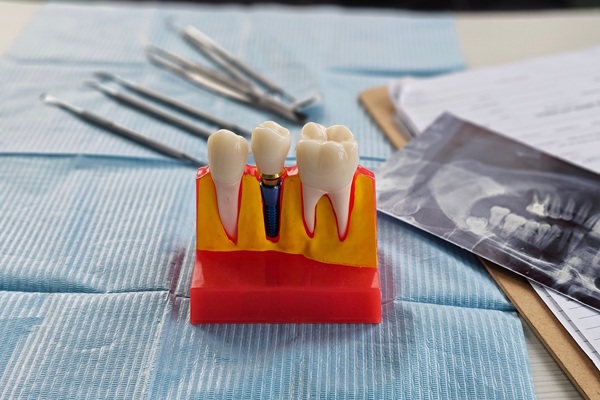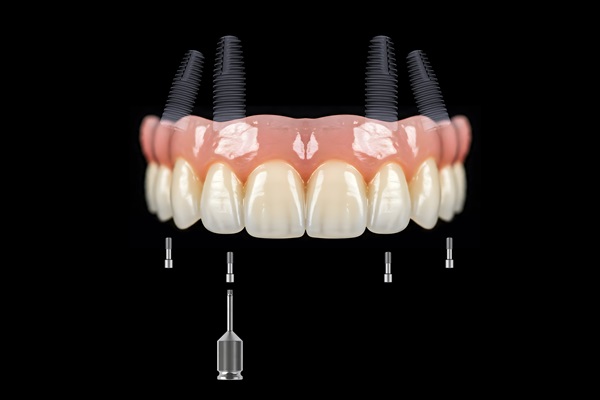PeriodontistBoca Raton, FL
A periodontist specializes in the prevention, treatment, and diagnosis of gum disease. They are also skilled in treating oral inflammation and the placement of dental implants. In addition, a periodontist undergoes extensive training in cosmetic and restorative treatments, including an additional three years of education beyond dental school.
Periodontal services are available at Thomas A. Copulos DDS, PA in Boca Raton and the surrounding area. Call us at 561-763-1066 to schedule an appointment to have your dental concerns addressed.
Periodontist Defined
A periodontist is a dental specialist who focuses on treating the gums and bones that support the teeth. They typically see patients with severe or complex cases requiring more advanced treatment than a general dentist can offer. Regarding the diagnosis and treatment of periodontal disease, a periodontist gets trained in the latest techniques. They are also well-versed in the field of dental implants.
During the first visit, the periodontist will review the patient’s medical and dental history. Certain medications and medical conditions, such as heart disease and diabetes, can affect periodontal care. The periodontist will examine the gums, look for gum recession, check the bite, and use a small probe to check pocket depths between the teeth and gums. We may also take X-rays to examine the health of the bone below the gum line.
Periodontics 101
Periodontics is the branch of dentistry concerned with the structures surrounding and supporting the teeth. The periodontal structures include the gums, jaw bone, cementum (the material that connects teeth to the jaw bone), and the ligaments that hold the teeth in place. This particular dental specialty focuses on oral inflammation that infects the gums and the structures that support the teeth.
Gum health is vital to overall health. The gums help keep the teeth in place and act as a protective layer against disease-causing bacteria. At the same time, the mouth is a leading gateway to the rest of the body, so harmful bacteria and infections in the mouth can lead to general health conditions. People who suffer from advanced gum disease are at a higher risk for heart disease, diabetes, and pregnancy complications.
What a Periodontist Treats
Periodontists offer many different treatments to address gum disease and other dental concerns. They can include:
- Root planing and scaling: These deep-cleaning, nonsurgical procedures remove plaque and tartar from above and below the gum line.
- Flap and pocket reduction surgery: For more advanced stages of periodontal disease, surgery may be required. During this surgery, the gums get lifted, and tartar gets removed. Afterward, the gums fit more snugly around the tooth, which can prevent bacteria from spreading.
- Regenerative procedures: This includes bone and gum grafts. A bone graft replaces bone destroyed by gum disease and promotes regrowth. Soft tissue grafts fill in places where gum recession has occurred.
- Dental implants: Implants are metal rods that hold artificial tooth replacements in place. Periodontists get specially trained in the placement, maintenance, and repair of dental implants.
A periodontist may also offer routine dental cleanings along with the services listed above. In addition, since gum disease can also cause cosmetic damage to a patient’s smile, a periodontist may suggest additional improvements, such as tooth whitening and gum contouring, once we resolve the oral health issues.
Visiting a Periodontist
A general dentist may decide to treat a patient’s periodontal needs first. However, they may refer them to a periodontist if specialized treatment provides a better long-term outcome. Since gum health is vital to overall health, a specialist may manage cases of moderate or severe levels of periodontal disease or more complex cases. Often, dentists and periodontists will work in tandem on patients’ treatments.
Patients may also get referred to a periodontist if health issues put them at higher risk for gum disease. That includes pregnancy, diabetes, heart disease, or have recently undergone cancer treatment. Optimal gum health not only improves overall health but reduces the risk for a host of other dental issues, including tooth loss. In addition, since a periodontist focuses on the gums, they can offer treatment options that are more precise and can handle complex issues better than a general dentist.
Benefits of Visiting a Periodontist
Visiting a periodontist is beneficial in many ways. First, this gum dentist can address advanced cases of gum disease. If left untreated, it will significantly affect a patient’s oral health and impact their overall health. Periodontists can also handle complex cases that may involve many different treatment options.
They provide specialized treatment when there is an infection of the gums and inflammation in the pockets between the teeth and gums. Periodontists train in deep cleaning procedures that help clean the teeth below the gum line. Since infections below the gum line can cause permanent damage to gum tissues, a periodontist can help control the spread of infection and promote healing.
If a patient has lost one or more teeth from disease or trauma, a periodontist can help. They are skilled in the placement of dental implants. In addition, since they specialize in the structure of the teeth, gums, and jaw, they will handle dental implant surgery properly.
Frequently Asked Questions About Periodontists
What is the difference between a periodontist and a general dentist?
A periodontist and general dentist both have degrees in dentistry. However, a periodontist will undergo up to another three years of training. This additional education focuses on diagnosing and treating gum disease and the other supporting structures of the teeth.
What can a periodontist do?
While several procedures can be done by either a general dentist or a periodontist, a periodontist is considered the better choice for dental issues related to gum disease. Periodontists can perform procedures ranging from surgical to cosmetic. Often, your general dentist and periodontist will work together on a customized treatment plan.
What are the signs of gum disease?
Gum disease is typically caught early during yearly preventative exams. If you do not see the dentist regularly for cleanings and exams and notice you have swollen gums, gums that bleed easily, mouth pain, or gum recession, you may have developed gum disease. The sooner you schedule an appointment to get evaluated, the better your outcome.
What happens during the first periodontal exam?
The periodontist will do a complete exam of your mouth, including the health of your gums, bite alignment, and the status of your teeth. They will also look for gum recession, loss of bone, and signs of gum disease. If needed, X-rays or other diagnostic tests will help determine a diagnosis.
Can children be at risk of developing gum or periodontal disease?
Periodontal disease is rarely ever found in children or adolescents. However, it is a possibility that they develop gum disease, most commonly gingivitis. It is important that children take good care of their oral health in the development stages as that sets them up for healthier teeth and gums into adulthood. That means proper brushing and flossing as well as visiting the dentist for routine checkups.
Let a Periodontist Improve Your Gum Health
If you currently suffer from gum disease or have a condition that puts you at higher risk, a periodontist can help set you up for oral health success. Do not wait until your condition becomes severe. Call Thomas A. Copulos DDS, PA at (561) 763-1066 to schedule an appointment.
Thomas A. Copulos DDS, PA is located at
1000 NW 9th Ct Ste 106
Boca Raton,
FL
33486





